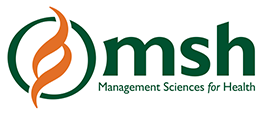
Management Sciences for Health (MSH), a global health nonprofit organization, uses proven approaches developed over nearly 50 years to help leaders, health managers, and communities in developing nations build stronger health systems for greater health impact. It works to save lives by closing the gap between knowledge and action in public health. Since its founding in 1971, MSH has worked in more than 150 countries with policy makers, health professionals, and health care consumers to improve the quality, availability, and affordability of health services. Since 2004, MSH has implemented several projects in Ethiopia, among which were the Rational Pharmaceutical Management Plus (RPM+); Strengthening Pharmaceutical Systems (SPS); Systems for Improved Access to Pharmaceuticals and Services (SIAPS); and the current Medicines, Technologies, and Pharmaceutical Services (MTaPS).
Project Name:
USAID Medicines, Technologies, and Pharmaceutical Services (MTaPS)
Budget Source:
Global Health Security Agenda (GHSA) through USAID
Project Life:
September 20, 2018 – September 19, 2023. The Ethiopia program started in July 2019
Project Objective:
The goal of the global, five-year (2018–2023) MTaPS program is to enable low- and middle-income countries to strengthen their pharmaceutical systems to ensure sustainable access to and appropriate use of safe, effective, quality-assured, and affordable essential medicines and medicine-related pharmaceutical services.
MTaPS GHSA goal:
Support antimicrobial resistance (AMR) containment by slowing the emergence of resistant bacteria and preventing the spread of resistant infections. This will be accomplished by helping to build the capacity of in-country stakeholders to implement a national AMR action plan.
Project Area:
Addis Ababa, Amhara and SNNP regions (Oromia, Harari and Tigray regions added following a request from the MOH)
Project Focus:
MTaPS/Ethiopia supports three results areas of the AMR action package
- Effective multisectoral coordination on AMR
- Optimizing the use of antimicrobials
- Strengthening infection prevention and control (IPC) practices
Project Targets:
The program is targeting 30 hospitals in the five regions and one city administration to support the revision and implementation of IPC guidelines, strengthen federal and regional health bureaus to implement antimicrobial stewardship (AMS), raise public awareness about AMR through building the capacity of journalists and civil societies (including professional associations), and improve AMR governance by supporting the Pharmaceutical and Medical Equipment Directorate (PMED) of the MOH to effectively coordinate multisectoral collaboration.
Partners (Global):
Core partners at the global level include Boston University, FHI360, Overseas Strategic Consulting, Results for Development, International Law Institute–Africa Centre for Legal Excellence, and NEPAD
Partners (In-Country):
Ministry of Health (PMED and Clinical Service Directorate), regional health bureaus, Ethiopian Food and Drug Administration, Ethiopian Pharmaceutical Association, and civil society associations (Ethiopian women and youth federations)
What we do:
The GHSA portfolio strategies and actions will focus on supporting the path to progress toward achieving higher GHSA/AMR action package capacity levels, as outlined in the joint external evaluation (JEE) tool. In collaboration with implementing partners and the Government of Ethiopia stakeholders, MTaPS has a short-term objective of improving Ethiopia’s JEE score from 2 to 3 for both AMS and IPC.
To achieve these objectives, MTaPS strengthens Drug and Therapeutics Committees and IPC Committees at 25 major public and five private hospitals in six regions to spearhead AMR work. At the federal/national level, MTaPS supports the development of guidelines, SOPs, and manuals; strengthens the national multisectoral coordinating functions of the MOH; and supports training in the areas of AMS and IPC. It also works with civil society organizations to enhance their awareness of AMR prevention and containment.
Point of Contact:
Negussu Mekonnen, PhD
Email: This email address is being protected from spambots. You need JavaScript enabled to view it.
+251 924 117366
